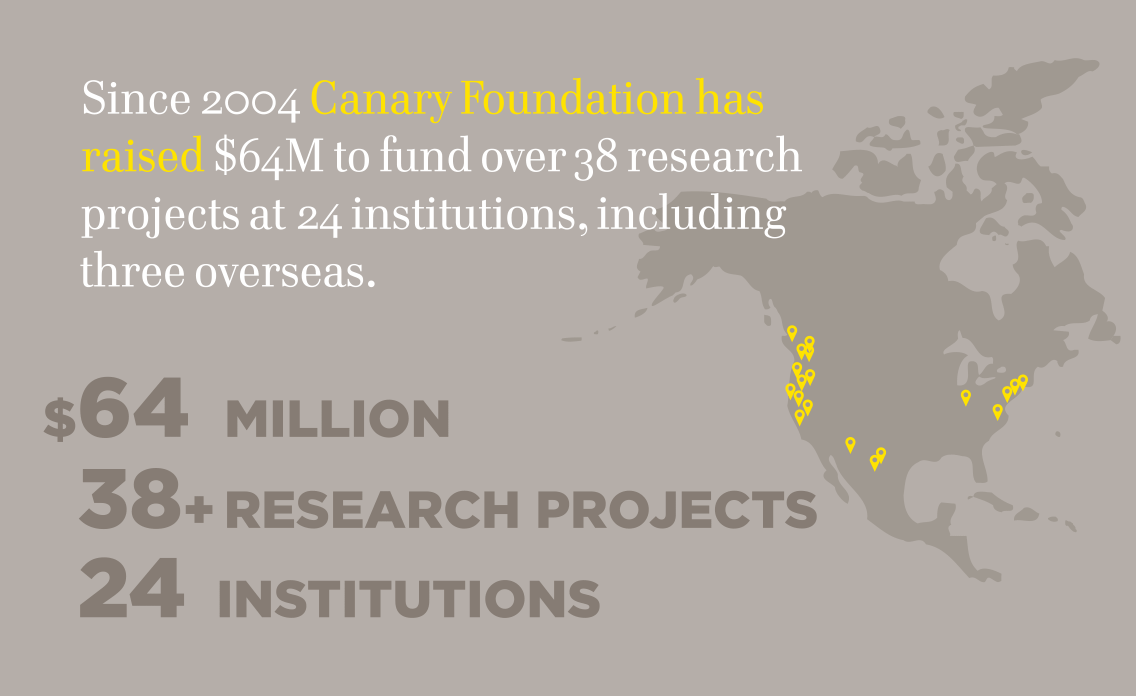About Canary
Mission:
To support research aimed at creating reliable and affordable early detection tests for cancer.
Why Canary, Why Now
No one gets time back. And for those with cancer and their families, that can be devastating. The Canary Foundation has started to do something about that. Founded in 2004 by Don Listwin after he lost his mother to misdiagnosed ovarian cancer, he envisioned a world of simple and safe tests that could identify and isolate cancer at its earliest, most curable stage.
Today, a short 17 years later, the Canary Foundation has raised more than $75 million to support early detection research. And we’ve moved faster than science typically moves, from theory to tractable problem to clinical use in many areas, thanks to Canary’s collaborative approach. Canary is the world’s first non-profit organization dedicated solely to the funding, discovery, and development of tests for early cancer detection.
Canary Foundation is based on a results-only business approach and cross-disciplinary collaborations and partnerships with renowned researchers, scientists and global institutions such as the Canary Center at Stanford and the Center of Excellence at the Fred Hutchinson Cancer Research Center—two centers that the Canary Foundation was instrumental in creating. Our international collaborations include Cancer Research United Kingdom (CRUK) and Cambridge University, and the University of Calgary. We are building a cancer-detection platform that promises to be the answer to next- generation cancer care worldwide.





